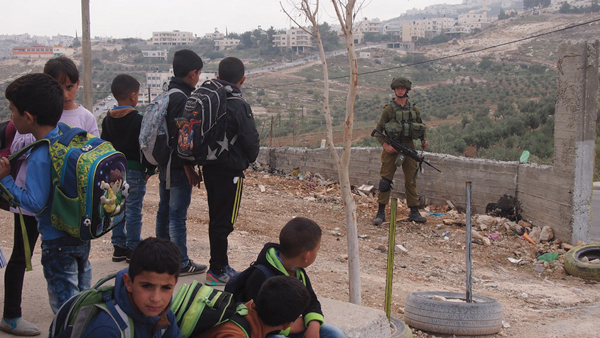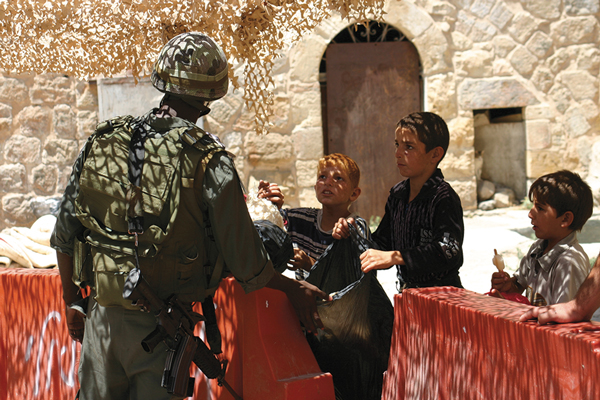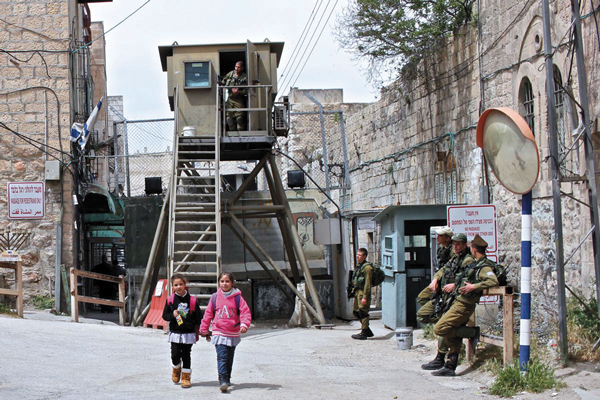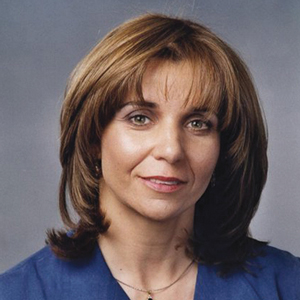
Education is a basic human right for each child, and schools must ensure that all children’s educational, psychological, and special needs are addressed as comprehensively as possible. Palestinians hold education in high esteem because due to the scarcity of resources under occupation, it is considered essential for survival.
Access to schools has been hampered by the ongoing occupation throughout the West Bank and Gaza and in occupied East Jerusalem, particularly in schools and communities that are located near the Separation Wall, settlements, military areas, and in isolated communities. Palestinian students continue to experience harassment on their way to school as well as inside the premises of schools, colleges, and universities.
The situation in occupied East Jerusalem (OEJ) is complex, and challenges are largely due to Israeli dominance over the Arab Palestinian population. An ongoing system of exclusion from subsidies and discrimination targets Palestinians. The people of OEJ are living under difficult socio-economic conditions. Approximately 80 percent of them subsist below the poverty line. The average available space of Palestinian households in the Old City consists of 40 square meters, with some families sharing kitchens and bathrooms. Brutal treatment and humiliation of the population, including young students, by Israel forces has led to trauma and mental disorders among many young students.
♦ The Palestinian education system includes preschool education (offered in 1,666 kindergartens throughout Palestine), basic education (grades 1 to 10, offered in 1,954 schools), secondary education, where students may choose between a literary or scientific concentration, or opt for a vocational track (grades 11 and 12, offered in 960 schools), and tertiary (higher) education, which is offered at universities, technical colleges, and community colleges.
Al-Quds University has existed in Jerusalem for over 30 years. The country’s leading academic institution and the only Arab university in Jerusalem, it ranks top in the entire Arab world with regard to the number of peer-reviewed publications per faculty member in a given year. Al-Quds has two principal campuses: a larger campus is located in Abu Dis, at the edge of Jerusalem, and a smaller “city” campus lies inside occupied East Jerusalem (OEJ) – in the Old City and its environs. With about 1,000 students and numerous institutes and research centers, the Abu Dis campus has over the past decade been largely split from the Jerusalem city campus and from the colleges and centers located within the Israeli-defined borders of East Jerusalem. Cut off from the territories by the Separation Wall, these communities have been left in an increasingly precarious position, both legally and practically. As a result, the university campus in OEJ has been forced to severely curtail its educational activities, as both students and professors have consistently been denied access to its premises.

In the last few years, the university has noted a marked increase in the pressure applied by the Israeli government on the political/legal and military fronts. Over the years, hundreds of students and some staff have been injured by the Israeli army in repeated attacks. Such “visits” have occurred on the university campus in Abu Dis and at times have caused injuries among students and staff and damage to university buildings and cars. Hundreds of tear gas canisters, rubber-coated steel bullets, and live ammunition have been fired there. Staff and students are frequently summoned, arrested, and intimidated, on both the Abu Dis campus and the premises in the Old City, which have been raided and closed down on numerous occasions.
On the legal/political level, the university has been struggling for its very existence, battling the threat of closure by the Israeli authorities – a threat that has been lurking for the past seventeen years. In addition, the university has a long history of attempts to fight for its right to exist through negotiating with Israeli authorities and by bringing its case to Israeli courts.

The point of disagreement is that although Al-Quds University is fully accredited and licensed by the relevant Palestinian bodies, and recognized worldwide, the Israeli authorities in OEJ have insisted that it submit to Israeli accreditation standards as an Israeli institution or be closed down and have its administration arrested. Thus, Al-Quds University was ultimately forced to apply for accreditation of its “city” campus as a separate institution under Israel’s jurisdiction. It did this based on an informal agreement with the Israeli Ministry and Council of Higher Education that, once it had submitted its application, Israel would automatically recognize all the degrees held by university graduates.
♦ In occupied East Jerusalem, currently 107,000 students attend 216 schools administered by 5 education systems: 14 percent Al-Waqf (Jordanian and Palestinian) schools, 2 percent UNRWA schools, 31 percent private and national schools, 43 percent official schools of the Israel-administered Jerusalem municipality, and 10 percent unofficial schools recognized by Israel.
According to both international law and the Oslo Accords, Palestinians have a right to both study and work in Jerusalem; they must be given the chance to learn and acquire the skills necessary to earn a living in their home city and country. Accordingly, Al-Quds University has the right to exist and operate as a university in East Jerusalem. In a formal statement to the Knesset signed by the then foreign minister, the late President Shimon Peres, the Israeli Foreign Ministry reiterated in a letter to Minister Holst of Norway on October 11, 1993: “Therefore, all Palestinian institutions of East Jerusalem, including the economic, social, educational and cultural, and the holy Christian and Moslem places, are performing an essential task for the Palestinian population. Needless to say, we will not hamper their activity; on the contrary, the fulfillment of this important mission is to be encouraged.”
♦ Israel must adhere to the stipulations of international law and to its own commitments signed in the Oslo Accords. It must support, rather than stifle, education on the campuses of Al-Quds University, both in Abu Dis and in occupied East Jerusalem.
The plight of Al-Quds University may not be a political issue. The university’s services are vital for the inhabitants of our city, but a solution can apparently only be reached if continued and great pressure is exerted on Israel to respect both international law, especially the right to education, and its own stated commitments. Israel must cease immediately from attacking Al-Quds University campuses, staff, and students, and it must permit the university to work without hindrance in Abu Dis and East Jerusalem, providing recognition to its graduates.
» Khuloud Jamal Khayyat Dajani is a doctor of medicine, a doctor of community medicine, and a doctor of philosophy in health policy and science. She is a professor of social medicine and health policy and dean of Hind Al-Husseini Women’s College, founding dean of public health and the Child Institute at Al-Quds University, and former executive vice president and director of International Cooperation at Al-Quds University.


